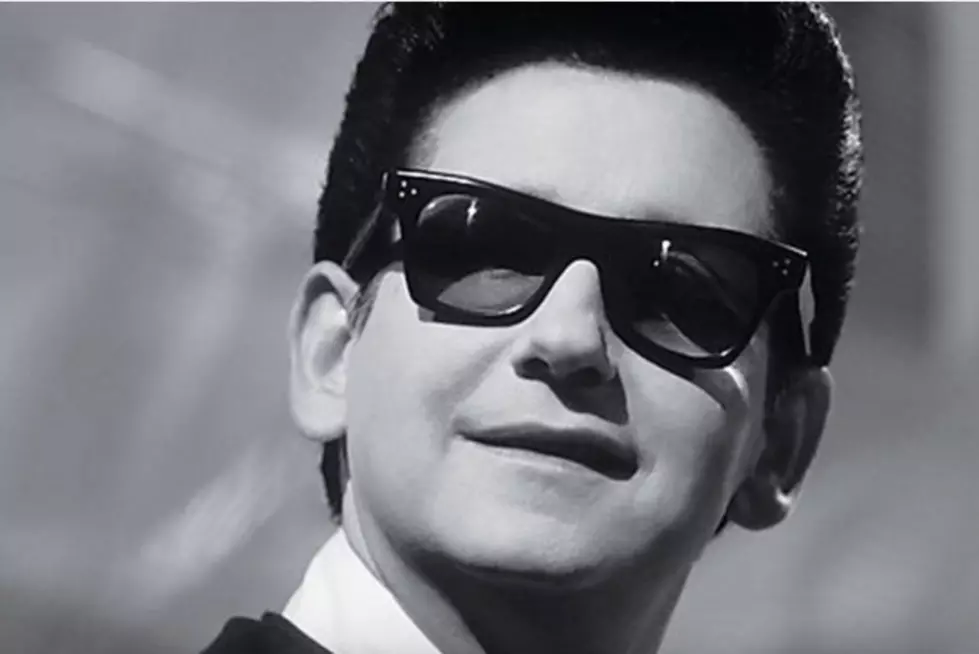
Roy Orbison, Under-appreciated Texas Music Legend
I played Roy Orbison's record oh pretty woman the other day and I got to thinking how Roy fits in the firmament of Texas musical stars. Certainly as a rock 'n' roll Hall of Fame member, one of the most recognizable figures of early rock 'n' roll, and the singer cited by no less an authority as Elvis Presley as one of the greatest voices of all time, it's not often we fans of rock music view Roy Orbison in an underdog light. He's one of the greats of all-time...right?
Well, yes and no. All those things I wrote in that first paragraph or true. Yet when I hear people talk about quintessentially Texas music, I rarely hear Roy Orbison mentioned. I'll hear Stevie Ray Vaughan always, Willie Nelson too. Rarely Roy. Here's my theories why:
1. All of his hits were recorded in either Memphis or Nashville. The rough-and-tumble Texas music scene lends little to what ultimately became the heavily-produced neo-operatic sound which characterized the highly-dramatic vibe of Roy's records. He recorded at the Bradley Barn and RCA Studios with all of the finest Nashville studio cats.
2. Most of the Texas music icons recorded music and projected an image that mirrored an aggressive stance and outsider background. Willie was one of the outlaws. Stevie Ray Vaughan aggressively played the black man's blues. Both of them militantly stood in rigid opposition to the prevailing polished sounds of their era. By contrast, Roy typified a romantic sound. While his themes of heartbreak and desolation were dark and personal, his musical background was not aggressive. He was not usualily a dangerous white trash boy on the prowl, until his last big hit on Monument: The unforgettable "Oh, Pretty Woman," a song whose urges are so front and center only a band as hopped up on hormones as Van Halen could come close to matching repressed Roy in a cover version.
3. Although Roy's family did suffer through the great depression, he was not as bad off as others. His mother was a nurse and eventually the family settled in Fort Worth, a bustling community at the time. Roy was also raised with a southern genteel nature. And unlike others in the music business, he was not only polite but he was trained in music and even college-educated. No old cowhand here.
4. His timing was off. His biggest hits happened in that time between rock's rise and the emergence and dominance of The Beatles and the bands of the British Invasion. People forget how aggressive and loud the Beatles were compared to what existed immediately prior to their emergence. Roy's records were the best of the bunch but they were sophisticated as the most ornate pop records, relying less on the raw power of a small combo and more on the construction of an intricate arrangement. Every one of his hits was a mini-masterpiece. Roy's records enveloped you with sound; the Beatles records hit you like a bucket of cold water in the face. It's a good thing he was already a legend by the time 1965 came around.
He did have his biggest hit the aforementioned "Oh, Pretty Woman", smack dab in the middle of the first wave of Beatlemania. But the record was uncharacteristically aggro whereas only a few Beatles records ever approached that sense of longing. It was lighting in a bottle. Never again.
Then again, when the Beatles wrote "Please Please Me," it was half as fast as it is now in an attempt to sound like Roy. The Texan set the bar for pop song craft and drama in lyrics, melody and production. That's the great legacy he brings for all Texas musicians and that's why he should be acknowledged as such.
BTW, we are happy to play Roy on k101.7!
More From KLTD-FM









